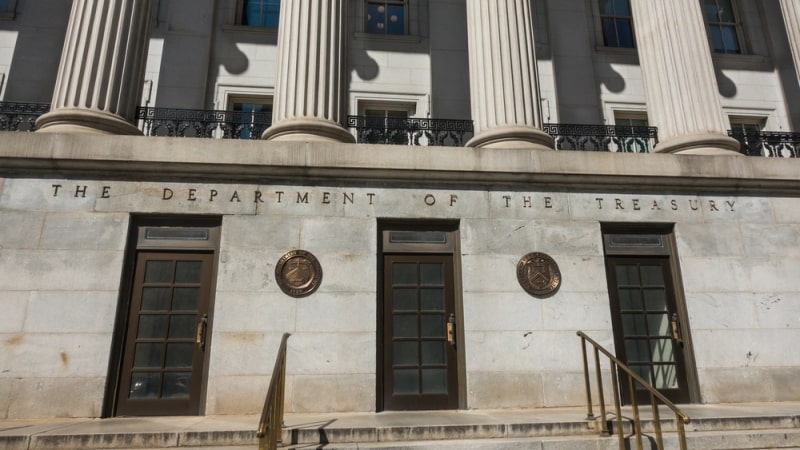
The Treasury Department issued a draft rule on Friday that would block U.S. private-sector investments in China that involve hot-button technologies including AI, quantum, and semiconductors.
The Notice of Proposed Rulemaking (NPRM) sets forth regulations that would implement President Biden’s executive order, “Addressing United States Investments in Certain National Security Technologies and Products in Countries of Concern,” issued in August 2023.
The order directs the secretary of the Treasury to enforce regulations that prohibit U.S. persons from engaging in certain transactions involving specific technologies and products that pose a “particularly acute national security threat to the United States”; and require U.S. persons to notify Treasury of certain other transactions involving specific technologies and products that may contribute to the threat to the national security of the United States.

The order identifies three categories of national security technologies and products to be covered by the rule: semiconductors and microelectronics; quantum information technologies; and AI.
“President Biden and Secretary Yellen are committed to taking clear and targeted measures to prevent the advancement of key technologies like artificial intelligence by countries of concern from threatening U.S. national security,” Assistant Secretary of the Treasury for Investment Security Paul Rosen said in a statement on June 21. “This proposed rule advances our national security by preventing the many benefits certain U.S. investments provide – beyond just capital – from supporting the development of sensitive technologies in countries that may use them to threaten our national security.”
President Biden’s executive order only identified one country of concern: China.
“President Biden is committed to keeping Americans safe and is taking action to prevent the exploitation of U.S. outbound investments by countries of concern seeking to develop sensitive technologies or products that are critical to the next generation of military, intelligence, surveillance, or cyber-enabled capabilities that pose national security risks to the United States,” the department said. “The Outbound Order recognizes that countries of concern are exploiting or have the ability to exploit certain United States outbound investments, including certain intangible benefits that often accompany these investments and that help companies succeed.”
The proposed rule notes that violations would be subject to civil and criminal penalties.
The Treasury Department emphasized that the U.S. is committed to fostering an open investment environment, “and this new program will not change that.”
“As described in the NPRM, this will be a narrow and targeted national security program focused on certain U.S. outbound investments that contribute capital as well as intangible benefits to persons of a country of concern engaged in activities involving certain sensitive technologies and products that could pose risks to U.S. national security,” the agency said.
The NPRM is open for public comment until Aug. 4. The NPRM will be followed later by final implementing regulations, which will set an effective date for the program, the agency said.
